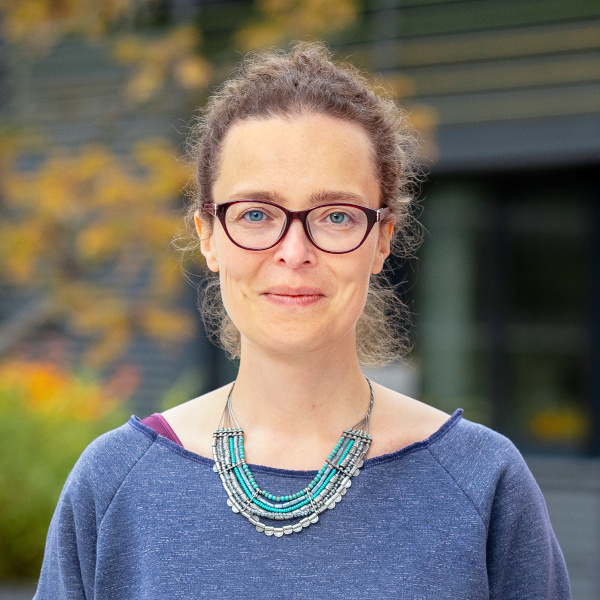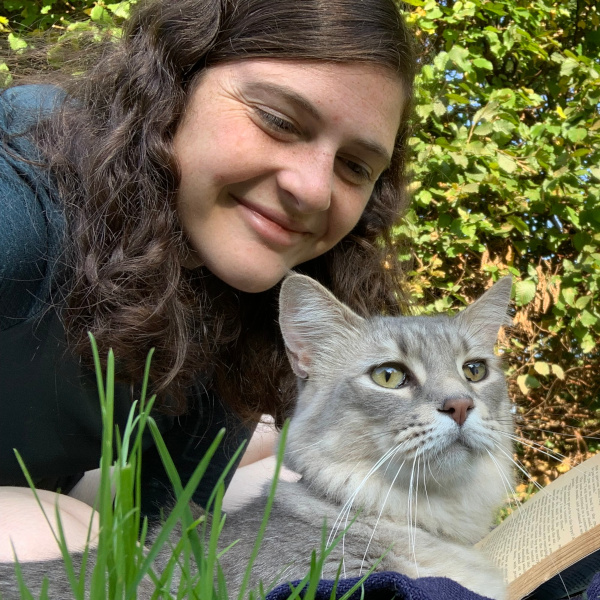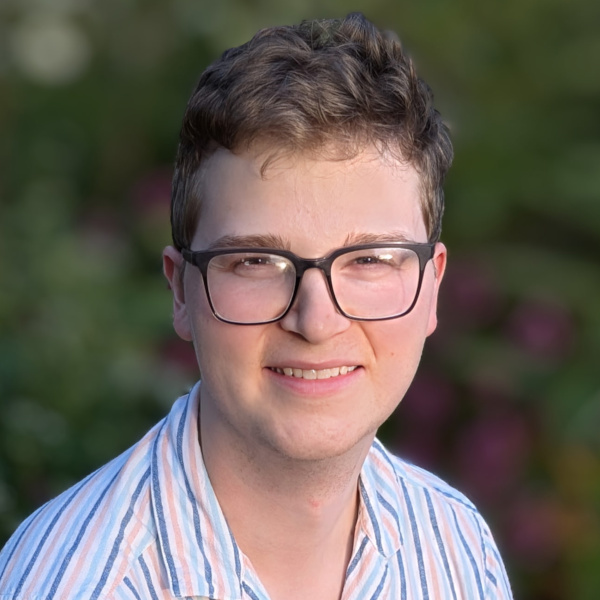Aleksandra Skirycz (Group Leader)
Aleksandra (Ola) Skirycz was born and raised in Poland, where she studied Biotechnology at the University of Wroclaw. She defended her Ph.D. from the University of Potsdam, Germany, in 2008. She then moved to Belgium to the Plant System Biology Institute in Gent (group of Prof. Dirk Inze), where she researched the molecular mechanisms underlying plant growth inhibition in response to water-limiting conditions. In 2012, she moved to the Filare Institute in Milano, Italy (group of Prof. Chiara Tonelli), and in 2013, to the ITV Institute of Technology in Belem, Brazil. Working in the Amazon region, she became fascinated by the secret life of natural products. In 2015, she returned to Germany and established a small-molecule regulation group at the Max Planck Institute of Molecular Plant Physiology in Golm in the Department of Prof. Lothar Willmitzer. In October 2020, she was appointed assistant professor at the Boyce Thompson Institute, Ithaca, US. In January 2024, the lab moved to Michigan State University.

Hannah McKinnon Reish (Lab Manager)
Hannah completed her master’s degree at Southeast Missouri State University in June 2024. Her thesis was on plastic biodegradation in multiple generations of darkling beetles and their microbiota. She graduated from Michigan Technological University in 2020 with a B.S. in Biology-Ecology. Her undergraduate research focus was aquatic toxicology. She has also worked in clinical virology and microbiology testing through her work in a COVID-19 testing lab and a pediatric genetics lab at Lurie Children’s Hospital.

Hillary Fischer (Postdoctoral Researcher)
Lead of the aphid small molecule work
Hillary Fischer is from the great state of Nebraska, The Good Life, where resplendent sunsets paint the skies over miles and miles of corn fields and prairies. She attended the University of Nebraska-Lincoln, studying Entomology, Plant Biology, Chemistry, and English for her BS. While working in the lab of Tiffany Heng-Moss as an undergrad, Hillary fell in love with researching aphids (Insecta:Hemiptera) in the lab and the field. These herbivorous Vampires of the Plant feed on the phloem and do extensive damage to crops. Hillary then moved to the University of Arkansas for her PhD to study the impact of chloroplastic reactive oxygen species on plant resistance to aphids with Fiona Goggin. After graduation, Hillary continued exploring the complex relationship between plants and aphids, finally coming to Ola’s lab to look at aphid salivary metabolites and how they impact the plant during feeding. Hillary has two beautiful cats who follow her around the world and she loves reading, writing, cycling, and canoeing.

Jieun Kang (Postdoctoral Researcher)
Lead of the plant-microbe interaction work
During my PhD, I focused on bacterial virulence systems and plant immunity, aiming to gain a deep understanding of their interactions to ultimately discover improved methods for crop protection in agricultural settings. In Ola’s lab, I have expanded my expertise by exploring protein-metabolite interactions starting from the analysis of untargeted proteomic and metabolomic data.

Pallavi Agarwal (Postdoctoral Researcher)
Lead of the dipeptide-enzyme interaction work
Hailing from India, I did my Master’s in Applied Botany at IIT Kharagpur, where I found my love for molecular biology. I received Marie Skłodowska-Curie fellowship to pursue PhD in Plant Molecular Biology at the University of Potsdam, Germany. My research spans characterizing the genes involved in plant stress response, positional identity in animal-Hydra, and biosynthesis of pharmacologically relevant plant secondary metabolites. Currently, at Ola’s group, I employ biochemical and molecular biology methods to address the role of dipeptides in carbon metabolism in Arabidopsis thaliana. Beyond lab work, I cherish my time with family and friends. I love to dance, paint and journal. My journey intertwines academia and personal passions, and I look forward to continue learning and evolving.

Maria Dolores (Postdoctoral Researcher)
My name is Maria Dolores (Lola). I earned both my master’s degree and PhD at Ben-Gurion University of the Negev, Israel. During my PhD I conducted research in grafted melon and the factors leading to graft collapse at Plant Metabolomics Lab under supervisor of Professors Aaron Fiat and Noemi Tel-Zur. Following my PhD, I joined Professor Amnon Ler’s lab at Volcani Institute, Israel. My research focused on the role of ribonucleases—specifically T2_RNase LE in tomato and RNS1 and RNS3 in Arabidopsis—in enhancing plant resilience.
I am passionate about identifying key metabolites, genes, or pathways that can significantly improve crop (tomato) tolerance to environmental stress. I am excited to be part of Ola’s Lab. In this groundbreaking lab, my work with small molecules will deepen our understanding of how plants adapt and thrive in challenging conditions.
I love to do CrossFit, run, hike, read a book, or travel in my free time. So, if you cannot find it in the Lab, you will probably find me at CrossFit, traveling or whatsoever, I live every second to the fullest as if it were the last.

Nicholas Schlecht (Postdoctoral Researcher)
Originally from Minnesota, I earned my Ph.D. at Michigan State University, where I explored the intricate world of terpenoid metabolism. My research combined transcriptomic analyses and Agrobacterium-mediated transient expression in Nicotiana benthamiana to uncover biosynthetic genes involved in furanoclerodane metabolism within the Lamiaceae (mint) family. Along the way, I identified a novel and highly promiscuous cytochrome P450 capable of oxidizing a broad range of diterpenoids—many of which aren’t naturally found in the host plant.
Beyond the bench, I contributed to computational projects focused on mining natural product libraries to map chemical diversity and developing a chemoinformatic reaction ruleset to simulate carbocation rearrangements in terpene synthases.
While terpenoids were my launchpad, my broader passion lies in plant phytochemistry—particularly the ingenious ways plants evolve to protect themselves through chemistry. As a postdoctoral researcher with Ola and the C-SPIRIT team, I’m excited to apply my expertise in natural products toward building curated libraries and identifying compounds that may interact with proteins critical to plant resilience.
When I’m not thinking about plant chemistry, you’ll probably find me on a squash or pickleball court, gathering friends for a board game or a session of Dungeons & Dragons, or exploring new foods and local IPAs. Graduate school also made me fall back in love with books, so don’t be surprised when I can’t stop recommending some!

Lydia Story (Graduate student)
Lydia is from a small town in Pennsylvania and recently moved to Lansing, Michigan for the start of her Ph.D. at MSU. She earned her Bachelor of Science degree from Wilson college in 2024, double majoring in Chemistry and Biology. Lydia has always enjoyed looking at organisms on the molecular level and understanding the chemistry of a biological system. In the summer of 2023, Lydia was a part of an REU program at the Boyce Thompson Institute working in Ola’s lab under her postdoc, Hillary Fischer. Now in the fall of 2024, Lydia has begun her graduate studies intending on obtaining a dual major Ph.D. in Biochemistry, Molecular Biology, and Molecular Plant Sciences. She is very excited to be back in Ola’s group and diving into more of the protein interactions and small – molecule studies around the model plant Arabidopsis.

Sophie Bonnema (Undergraduate student)
Sophie is from Holland, Michigan. She is an undergraduate student at Michigan State University pursuing a degree in Physiology with a minor in Spanish. While in the lab, she plans to strengthen her research skills and grow her knowledge of biochemistry. After completing undergrad, she plans to attend graduate or medical school. Outside of the lab, Sophie spends her time running as a member of the cross country and track & field team at MSU, baking, and reading.

